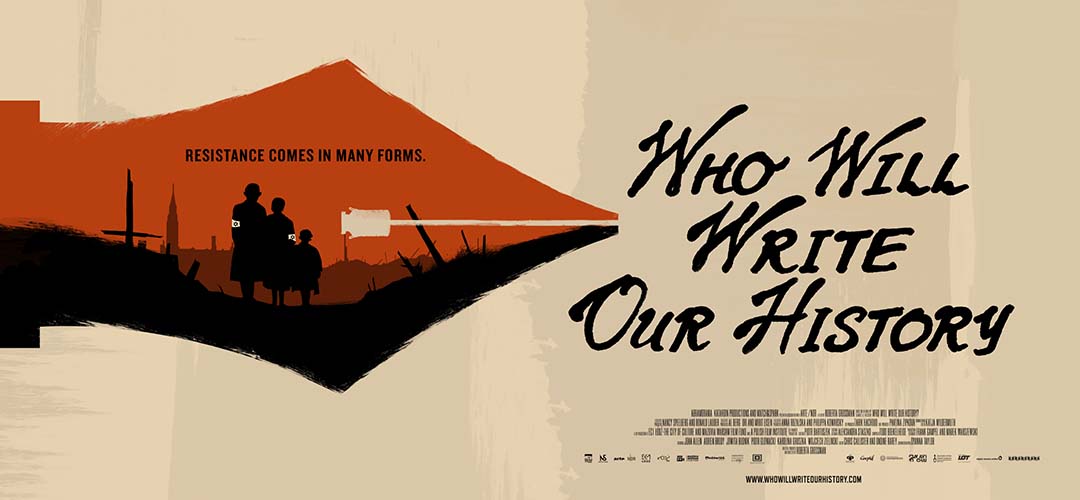
Who Will Write Our History: Documentary Film About the Warsaw Ghetto Archives is Touring the World to Great Acclaim
The Warsaw Ghetto uprising is widely known; what has been almost unknown until now is that, in another ongoing act of defiance, a clandestine group of more than sixty journalists, scholars, and community leaders organized to document Jewish life in the Ghetto, resulting in an extensive archive of thousands of pages and artifacts, much of which has been recovered.
The group, known as Oyneg Shabes, was led by historian Emanuel Ringelblum. It formed immediately after the Ghetto was sealed by the Nazis in November 1940, and it continued until the Warsaw Ghetto uprising.
“Will the Germans write our history, or will we write our history?” was the question that spurred the group members to document life in Ghetto as well as many aspects of Jewish life and culture at the time—they collected and/or commissioned materials such as essays, poems, diaries, jokes, and songs. In addition, they gathered ephemeral material including photographs, newspapers, German pronouncements, and even labels on Ghetto goods. They also wrote reports of what was happening and sent them to London through the Polish underground. In all, the Oyneg Shabes members produced or collected more than sixty thousand pages of documentation and buried it in separate containers, hoping it would survive the war.
Targum Shlishi helped to support Who Will Write Our History, a feature documentary that tells this compelling story. The film, directed by Roberta Grossman, executive produced by Nancy Spielberg, and based on the 2007 book by historian Samuel Kassow, was six years in the making. More than two hundred people were involved in the creation of the film, including actors Adrien Brody and Joan Allen, who voiced the film’s two main characters.
The film premiered at the San Francisco Jewish Film Festival in July, where it won the audience award for best documentary feature and enjoyed sold-out screenings. Since then, the film has been screened widely, including a global event in conjunction with International Holocaust Remembrance Day on January 27, 2019 that originated at UNESCO headquarters in Paris and streamed to more than 350 venues in 55 countries. Additionally, there has been significant and positive media coverage. Response to the film has been “overwhelmingly powerful,” according to Grossman.
Currently, and through February 14, the film is on view in both New York at an extended run at the Quad Cinema, and Los Angeles at Laemmle Music Hall and Laemmle Town Center as part of an Academy Award-qualifying theatrical run.
“The moment I found out about this secret band of journalists, scholars, and historians, I knew I had to make a film about them. Their story…is, in my opinion, the most important unknown story of the Holocaust,” director Roberta Grossman writes in her director’s statement. “Historians concur that the Oyneg Shabes Archive is the richest cache of eyewitness, contemporaneous accounts to survive the Holocaust. Despite its importance, the archive remains largely unknown outside academic circles. It is my hope that Who Will Write Our History will change that in the way that only a film can do, by making the story accessible to millions of people around the world.”
View the trailer of Who Will Write Our History (click image to play)
Poster image and trailer courtesy of Who Will Write Our History
